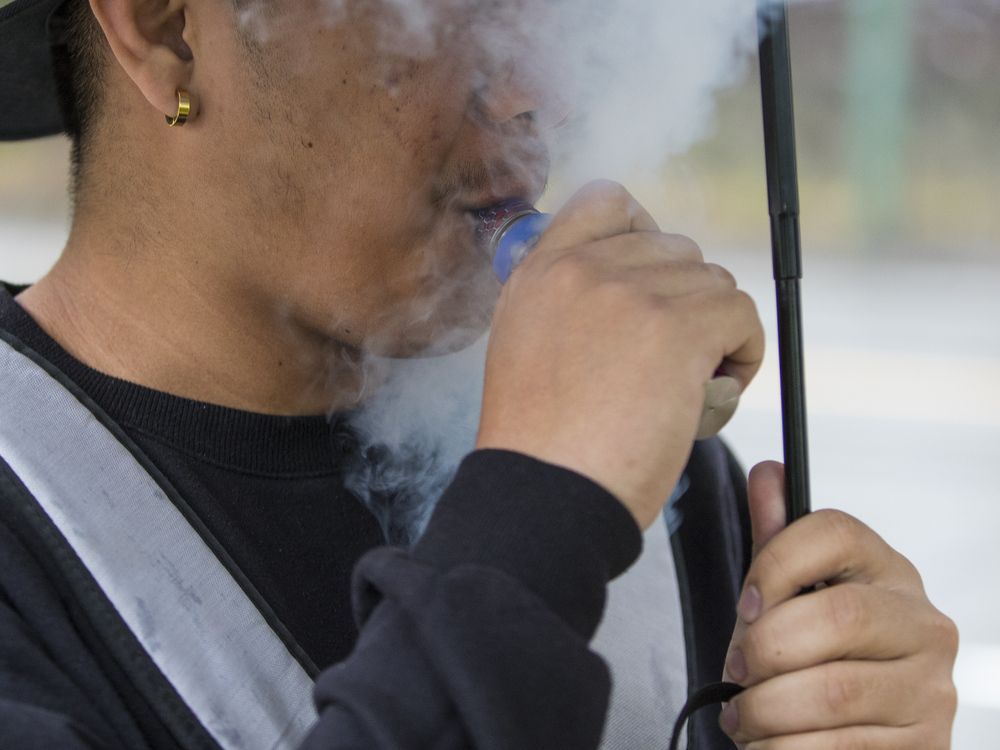Health
British Columbia’s New Bill Targets Vaping Industry with Controversy

The government of British Columbia has proposed a new legislation, Bill 24, introduced by Attorney General Niki Sharma, aimed at addressing health damages associated with vaping. The bill empowers the government to impose fines and pursue legal action against vendors of vaping products. Critics argue that this legislation misrepresents the role of vaping in public health and may inadvertently drive the industry underground.
Bill 24’s Impact on Vaping and Public Health
Supporters of vaping view it as a critical tool in reducing tobacco-related harm, while detractors claim it poses significant risks, particularly to young people. The legislation seeks to establish penalties for vendors who sell vaping products, particularly to minors. Advocates for public health express concern about nicotine dependence among youth, stating that measures must prioritize protecting children while allowing adults to make informed choices.
Research from Public Health England and the Royal College of Physicians indicates that e-cigarettes contain at most five percent of the harmful toxins found in traditional cigarettes. This fact remains largely unknown to the public, with a significant portion of the population unaware of the potential benefits of vaping as a smoking cessation tool.
Despite the government’s intentions, the reality on the ground in British Columbia suggests that illegal vaping products are already prevalent. Many vendors in Vancouver sell inexpensive, unregulated items, complicating enforcement efforts against illegal sales. This raises questions about the effectiveness of Bill 24 in curbing the underground market.
The Challenges of Regulating the Vaping Industry
Legal and regulatory frameworks for the vaping industry are complex and varied. The disposable e-cigarette market, which constitutes over half of current consumption, is largely supplied by imports from China. Many of these products are mislabelled, creating further complications for both consumers and regulators. According to experts, the challenge lies in distinguishing between legitimate products and those that evade regulation.
Additionally, enforcement against illegal sales is hampered by the involvement of gangs operating in First Nations communities, where unregulated products are readily available. Critics argue that instead of pushing legal producers into a more challenging environment, the government should focus on supporting them to combat the illegal market effectively.
Moderate regulation and sensible taxation have proven effective in other jurisdictions. For instance, Sweden boasts a five percent smoking rate alongside a twenty percent usage rate of snus, a smokeless tobacco product. The country emphasizes the use of lower-risk alternatives rather than pursuing punitive measures against producers.
The implications of Bill 24 extend beyond public health; the legal vaping industry also contributes significantly to the economy through job creation and tax revenue. Critics contend that this new bill may not only fail to achieve its intended goals but also enrich legal firms while bolstering illegal trade.
As discussions surrounding this legislation continue, it remains essential to consider the balance between protecting public health and supporting harm reduction strategies. The outcome of this bill could have lasting effects on both the vaping industry and the broader public health landscape in British Columbia.
Professor Ian Irvine from Concordia University, who has consulted on alcohol and tobacco policies, highlights the need for a more informed approach to regulating vaping. His insights suggest that effective strategies should prioritize harm reduction and consumer education rather than punitive measures that may inadvertently harm both the industry and public health.
The debate surrounding Bill 24 underscores the complexities of vaping regulation and the necessity for informed, balanced approaches that prioritize the health and safety of the community.
-

 Lifestyle2 months ago
Lifestyle2 months agoWinnipeg Celebrates Culinary Creativity During Le Burger Week 2025
-

 Health2 months ago
Health2 months agoMontreal’s Groupe Marcelle Leads Canadian Cosmetic Industry Growth
-

 Science2 months ago
Science2 months agoMicrosoft Confirms U.S. Law Overrules Canadian Data Sovereignty
-

 Education2 months ago
Education2 months agoRed River College Launches New Programs to Address Industry Needs
-

 Science2 months ago
Science2 months agoTech Innovator Amandipp Singh Transforms Hiring for Disabled
-

 Technology2 months ago
Technology2 months agoDragon Ball: Sparking! Zero Launching on Switch and Switch 2 This November
-

 Technology2 weeks ago
Technology2 weeks agoDiscord Faces Serious Security Breach Affecting Millions
-

 Technology2 months ago
Technology2 months agoGoogle Pixel 10 Pro Fold Specs Unveiled Ahead of Launch
-

 Science2 months ago
Science2 months agoChina’s Wukong Spacesuit Sets New Standard for AI in Space
-

 Education1 month ago
Education1 month agoBrandon University’s Failed $5 Million Project Sparks Oversight Review
-

 Technology2 months ago
Technology2 months agoWorld of Warcraft Players Buzz Over 19-Quest Bee Challenge
-

 Education2 months ago
Education2 months agoAlberta Teachers’ Strike: Potential Impacts on Students and Families
-

 Business2 months ago
Business2 months agoDawson City Residents Rally Around Buy Canadian Movement
-

 Technology3 weeks ago
Technology3 weeks agoHuawei MatePad 12X Redefines Tablet Experience for Professionals
-

 Business2 months ago
Business2 months agoNew Estimates Reveal ChatGPT-5 Energy Use Could Soar
-

 Science2 months ago
Science2 months agoXi Labs Innovates with New AI Operating System Set for 2025 Launch
-

 Technology2 months ago
Technology2 months agoFuture Entertainment Launches DDoD with Gameplay Trailer Showcase
-

 Technology2 months ago
Technology2 months agoInnovative 140W GaN Travel Adapter Combines Power and Convenience
-

 Technology2 months ago
Technology2 months agoGlobal Launch of Ragnarok M: Classic Set for September 3, 2025
-

 Business2 months ago
Business2 months agoBNA Brewing to Open New Bowling Alley in Downtown Penticton
-

 Business1 month ago
Business1 month agoRocket Lab Reports Strong Q2 2025 Revenue Growth and Future Plans
-

 Technology2 months ago
Technology2 months agoNew IDR01 Smart Ring Offers Advanced Sports Tracking for $169
-

 Technology2 months ago
Technology2 months agoArsanesia Unveils Smith’s Chronicles with Steam Page and Trailer
-

 Health2 months ago
Health2 months agoGiant Boba and Unique Treats Take Center Stage at Ottawa’s Newest Bubble Tea Shop










